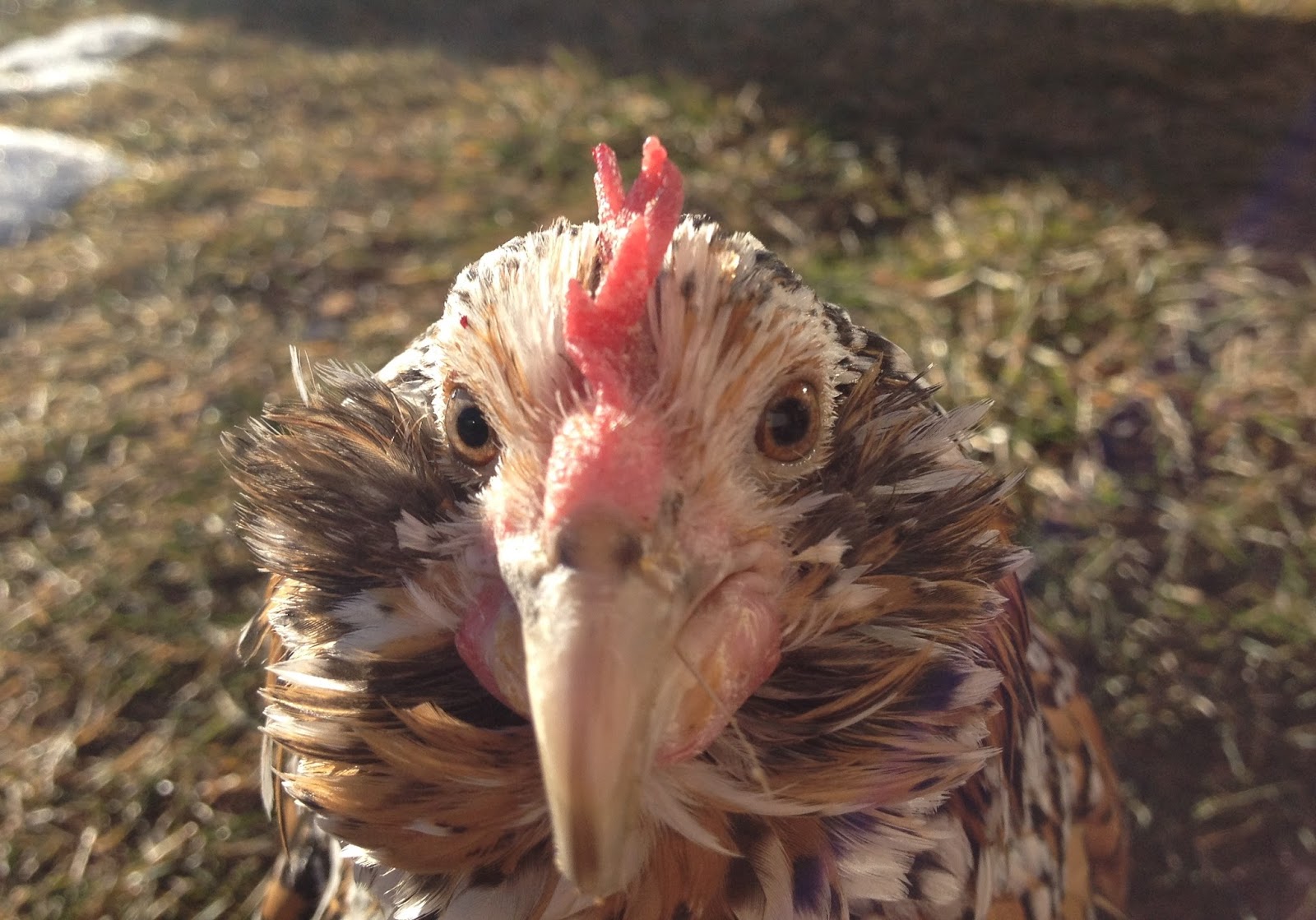Experts and long time owners of chickens are the best source of knowledge when it comes to raising chickens. In all of my research, I have come to find a few poignant people who stand out when it comes to chicken knowledge. Terry Golson at HenCam.com (has kept chickens for 20 years) who writes a blog called HenBlog, is one of these people. I managed to find a podcast of an interview that Terry had with a radio show host about keeping chickens, and found it to be a great thing to listen to before getting chicks, or even to learn once you have your chickens. Please
click here to listen to the podcast!
This picture is borrowed from www.hencam.com.
In the interview she discusses the challenges associated with keeping chickens in a cold climate, such as ours here in Colorado, where there is often snow on the ground, cold wind, and below 0 degree nights. She states that having a properly insulated coop from day one is much easier than retrofitting a not-so-great coop to be winter hardy for your birds. We have a thermometer in both of our coops, which relays to a display in our house. This way we can monitor the temperature on extremely cold nights, to help us decide whether to use supplemental heat or not, and tells us how well insulated our coop is. We had a week of consistently well below 0 degree nights. Because our coops were built draft free, they maintained an above 0 degree temperature (close to 15 degrees warmer) on those cold nights. I would definitely agree that in places like Colorado, it is vital to have a draft free, but well ventilated coop. On the other hand, Terry brought up the fact that summer heat is more dangerous to chickens than the cold. Giving your chickens extra water, shade, and somewhere to dust bathe will help to keep them cool. Last summer I witnessed how hot my chickens got on 90+ degree days especially, and gave them water with ice cubes in it and a cool pool for them to stand in, which seemed to help as well.
She also discusses the life cycle of a chicken, and how chickens only produce eggs productively for the first 2 years of their life. However, chickens live to be 6-8 years on average. Something that city-dwellers should keep in mind is whether they plan on keeping their chickens for their entire life, or are the chickens kept for eggs only (not pets). If you plan on keeping your chickens as pets (like me), keep in mind that keeping chickens is a 6-8 year commitment. If not, what do you plan on doing with the birds once their productive years are over. Terry discusses that regardless of your plans, you need to do right by the animal and keep them healthy and happy for the length of their life. Once the animal’s quality of life is over, you may need to euthanize your birds. This can be an extremely difficult choice once you have gotten attached to the animals, but it is something you sign up for when you keep any pet. Unfortunately, we didn't know that anything was wrong with my sweet Basil until it was too late. She only lived 8 months, but she was the sweetest bird. We believe she died from a genetic defect or brain tumor. She had been sick with one thing or another her whole life, and was kept in our house for most of her life. She passed away in my arms. I cried for days. These little critters sure melt your heart. The picture below is of Basil about a month before she passed away suddenly. We feel that she had a great life and will always be remembered for her inquisitive nature.

Another thing that Terry discussed in the interview was the importance of feeding your chickens good food. It’s extremely important to give them a good commercial feed, as well as vegetables and fruits. We give our chickens food made locally in Fort Collins at Ranch-Way Feeds, and feel that it's been a great food for our birds. I have also discovered that my chickens’ favorite foods are tomatoes and squash, and an occasional treat of plain yogurt. Below is a picture of my birds eating yogurt. They love the stuff, but all dairy should be given in moderation.
In summation, the interview with Terry Golson is extremely informative and good for both new and experienced chicken keepers to listen to. She is a kind person who loves her animals and knows how to properly care for them. Be sure to head to her website at
www.hencam.com to read her blog, watch the streaming webcams, and more.





























